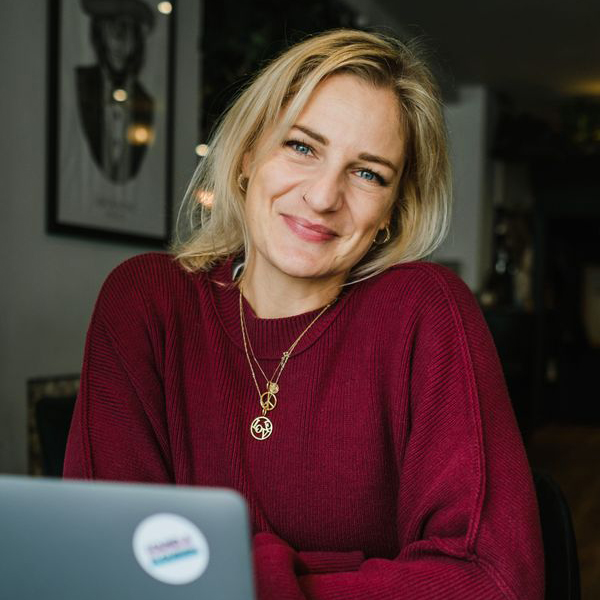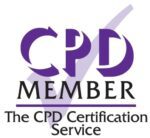It doesn’t matter who you are. Everybody wants to host or launch a podcast. However, there is something most people forget: podcasts are not an easy feat. Like starting a YouTube channel, podcasts are now everywhere, representing fierce competition.
Planning is even more critical than ever before.
You want to start podcasting for your business to add value to your core persona. You want to give an insider view of your business and overall story.
The good news is that you have a massive audience waiting for you.
Listener numbers are rising, with an estimated 55% (155 million) of the U.S. population listening to a podcast — up from 51% in 2019.
Yet, the number has not increased as much as the number of new podcasts dropping daily. I recently interviewed Tom Hunt, founder of bCast. He provided great insight into the matter.
The number one thing that I would say to a new podcaster is that when you decide what audio content to create, you have to think about the specific type of person you want whose life you want to improve.
Like a blog, your podcast should be content-focused, first and foremost. You can then look at taking things to the next level. For example, you can encourage listeners to access free content or alternatively check out one of the latest offerings. In fact, you can add audio inserts at the beginning of each episode – one of my favourite bCast features.
A note about formats
Remember to listen to your guests regardless of which format you go for. For interview shows, it’s vital to not only come with pre-scripted questions but to allow guests to share the stories they’re passionate about.
As long as the audio quality is good and engaging and I can create a flow for my listener, I think the format of my podcast is just as good as any podcast recorded in a studio.
What really has made a difference for me has been the planning and marketing of the podcast. It started almost 3 months before it launched to reach massive growth and snag the New and Noteworthy in business.
I lie, actually. First, it started with a podcast pilot.
Bonus: the pilot
I recorded a rough version of the podcast interview style, including an introduction from our team over six months before we launched the podcast itself, and sent it to various people. You might think it was a waste of time.
However, the podcast pilot will come in handy again before the podcast is out. You can also use it as an excellent audio trailer that gives platforms like Apple Podcast a reason to promote your show.
12 weeks away to podcast launch
I’m not advocating that every single podcast is fully recorded 12 weeks before it’s out. However, if you are busy and podcast on external interviews, you need to consider any sort of unexpected events. This could highly compromise the timing of your podcast.
If you’re running a solo show, or you’re not distracted about the type of podcast that you’re running, then maybe meticulously planning your content, interviews, and topics is not essential.
In our case, 12 weeks before the podcast launched, I made sure that I had scheduled 15 interviews and had enough extras in case people cancelled and couldn’t make the appointment anymore.
This is not just a hack for your own peace of mind.
You need to nurture your relationship with your audience and let them know they can depend on when you’ll give them new episodes. Having content ready helps you to be as consistent as you can. Nothing can beat trust when it comes to creating a loyal audience.
Scheduling interviews means you need to have the perfect link with a set number of weeks or days that you’re available to record, but you also need to be able to provide people with an idea of your podcast format.
As I promised, the pilot is coming back. You can use the pilot to showcase to your potential interviewee what they can expect from a podcast. It doesn’t matter if it’s fully scripted or free flow. People want to know what they’re getting themselves into. This is the perfect time to contact all of your interviewees and any information for your introductions and notes.
Bonus: we asked each guest if they could also suggest the name of another guest for future seasons.
8 weeks to podcast launch
The launch date is only two months away, and there is still a lot to be done.
Firstly, we finalised a final version of our podcast artwork and the time that we will find our schedule and decide which interviews will come up when.
We looked for specific themes, topics, or seasonal elements that can help us make our content calendar as smooth as possible.
Secondly, we came up with the name of 30 people that we thought would love the podcast and would be happy to help us share when the podcast was out.
At this time, we were yet to make any public announcements. However, we created a very tight schedule for the first four weeks of the podcast and the first four weeks of the podcast launch itself. This included social media mentions, dedicated newsletters, and articles showing that our guests could reschedule the audiences.
Finally, we made sure our content addressed what our audience was looking for in terms of solving problems and educating them on how the podcast would help them succeed to start growing their interest.
4 weeks to podcast launch
We decided to only give our audience four weeks as the week before the official launch, we would release the podcast pilot so people could listen to it and subscribe en masse.
We first released a snippet of our pilot through a straightforward graphic that would allow you to listen to the podcast’s first minute.
Secondly, we created a series of stories with a countdown that would end when the podcast was out.
Each week for the following three weeks, we would share different hints at different podcast guests and snippets of some more interviews with our favourite quotes.
Once again, we emailed our guests to remind them that the podcast would launch very soon. We asked them to write a review as soon as the podcast was out.
We also got back in touch with our 30 selected people to inform them of the imminent launch of the podcast and ask them to review and write the podcast when it was out.
1 week to podcast launch
The pilot drops. How exciting.
At this time, we were full-on parading by first releasing a dedicated newsletter encouraging them to listen to the pilot.
Moreover, we sent an email to our guests, including a generic asset in different formats to allow them to share that the pilot launch and people should be subscribing.
Lastly, we sent one more email to our 30 selected people to ensure they subscribed, rated and reviewed on iTunes.
The podcast is out! What’s next?
As the podcast is now out, the team sends our guests a reminder every week about their episode being live and their dedicated graphic assets.
This is roughly what our promo schedule looks like:
- Every Monday and Wednesday, we share on all our social accounts video snippets from the podcast
- Each Monday, we spotlight the latest episode in our weekly newsletter
- I reshare the videos from the show on my personal accounts as well
Why do we do that? This is known as an amplification strategy. This is the type of strategy that promotes each episode within the first 24 hours of its release, maximising its exposure.
On top of that, one way that helps to convince interviewees to link over to you from their website and social media is to do the work for them.
If the person has a large audience, they are likely quite busy.
Send them an email thanking them for being on the podcast.
“I know you’re very busy, so I created some social media posts so you can copy and paste them to your followers if you’re interested in sharing the information you told me in the interview.”
Bonus: four weeks in
iTunes has a prominently-display section for “New and Noteworthy” podcasts. When you launch your podcast show, you will likely show up in this area for at least part of the first 8 weeks that your show is new.
The 8 weeks of new and noteworthy are your best chance to build an audience. Do not waste it.
This is why 4 weeks in, we sent a recap of our first four episodes, encouraging people to listen through. We also sent a reminder to our golden 30 with one more prompt to review and rate.
If you want to monetise your podcast, these are the three most common ways to make money from your show.
Sounds too much?
Most people think they’ll manage to be on top of their podcast, regardless of “life” happening around it.
No matter how motivated you think, you are now, recognise that you will burn out, become distracted, and eventually miss publishing if you aren’t working ahead. I highly recommend working at least 3 weeks ahead in your publishing schedule.
Ready to get started with positive impact marketing?
Set up power marketing systems build a marketing strategy that drives results, when you join our certification.
Develop an advanced set of marketing skills that drive more measurable results to any project and harness the power of psychology, purpose, storytelling, and impact to build trust in an increasingly skeptical world.
Take our certification, build your marketing plan and build your ultimate marketing toolkit.




